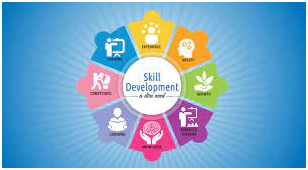Managing Skill Development to Augment Workforce Safety
Many people are working in jobs that do not match their level of education. At the same time, many employers claim to have difficulties in finding workers with the skills that they need to expand their business and innovate successfully. This phenomenon points to a significant disconnect between the world of education and the world of work. Drawing on labour force survey data on the level of education and occupations of all employed workers in over 130 countries, the ILO estimates that only about half of these workers hold jobs corresponding to their level of education. The remainder are either overeducated or undereducated for their jobs.
Workers in higher income countries are more likely to hold jobs that match their level of education. In high income countries, this is the case for around 60 per cent of the employed. The analogous shares for upper-middle- and lower-middle income countries are 52 and 43 per cent, respectively. In low income countries, only one in four workers hold jobs corresponding to their level of education. These observations suggest that the rate of matching increases with countries



